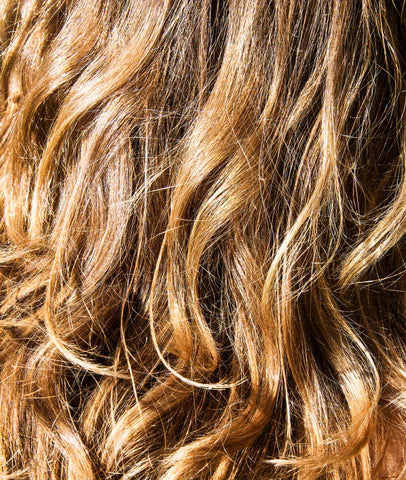Your Cart is Empty
Thicker, Fuller Hair Without the Side Effects.
Thicker, Fuller Hair Without the Side Effects.
Thicker, Fuller Hair Without the Side Effects.
March 23, 2025 3 min read
Hair loss is a common concern affecting countless women worldwide. While it's often alarming, understanding the root cause of your hair loss is essential in effectively addressing the issue. Female hair loss can stem from hormonal fluctuations, nutritional deficiencies, stress, genetic predispositions, autoimmune disorders, and even certain hairstyles or chemical treatments. Identifying the underlying cause is the first step in implementing a successful strategy on how to stop hair loss for women.
A balanced dietary approach plays a pivotal role in preventing hair loss and promoting hair growth in women. Ensuring your diet includes essential nutrients is vital. Iron deficiency, for instance, commonly contributes to hair thinning among women. Incorporating iron-rich foods like leafy vegetables, lean red meat, and fortified cereals combat this effectively. Furthermore, nutrients such as Biotin (Vitamin B7), Vitamin D, Zinc, Omega-3 fatty acids, and protein significantly support hair health. You might consider supplements if obtaining sufficient nutrients through diet alone proves challenging.
It's notably challenging to navigate stress-free living entirely, but prolonged stress significantly affects your hair health. Chronic stress can disrupt the hair growth cycle, leading to temporary hair thinning and loss. To effectively stop hair loss, explore practices that enhance stress management, including yoga, meditation, mindfulness techniques, or engaging in regular physical exercise. Enhancing the quality of sleep and ensuring adequate relaxation time are equally important to safeguarding overall hair wellbeing.
A less recognised yet impactful cause of hair loss among women involves harsh hairstyling techniques. Caring for hair appropriately means avoiding excessively tight hairstyles – such as ponytails, braids, or hair extensions – that place unnecessary tension on hair follicles, leading to traction alopecia. Overuse of heated styling tools like flat irons, curling irons, and blow dryers can severely weaken hair structure, adding to damage and eventual hair loss. By minimising heat exposure, opting for gentle treatments and keeping hair loosely styled, women can actively protect hair health.
For some women, lifestyle modification alone won't adequately halt hair loss. At this stage, professional treatments or consultations with a hair specialist or dermatologist become essential. Medical interventions such as Minoxidil have shown proven effectiveness in combating female pattern hair loss; this FDA-approved topical medication works by enhancing blood circulation to hair follicles. Alternative options worth discussing with your practitioner include Platelet-Rich Plasma (PRP) Therapy, hormonal therapy for hormonal imbalance hair loss, or laser hair treatments (Low-Level Laser Therapy), each providing solid medical-backed solutions.
A healthy scalp equates to healthy hair; incorporating diligent scalp care routines fosters improved follicle health and reduces unnecessary hair shedding. Choosing mild hair-care products (free from harsh chemicals such as sulphates and parabens), regular scalp massages to stimulate blood circulation, and keeping scalp hygiene optimal, contribute substantially to preventing female hair loss. In certain cases, specialised shampoo and conditioner products tailored specifically for hair loss issues further assist in managing and improving hair quality and density.
While numerous strategies and lifestyle modifications assist women in slowing hair loss effectively, often incorporating a scientifically formulated product provides additional ongoing support. One such proven treatment is Folliboost, a specialised hair growth serum specifically designed for women experiencing thinning hair. With clinically backed ingredients targeting strengthened hair follicles and renewed hair growth, the serum complements your holistic approach to tackling female hair loss safely and effectively.
Hair loss in women isn't simply a cosmetic concern—it's closely tied to self-esteem, emotional wellbeing, and general health. Successfully addressing this common dilemma involves combining dietary improvements, lifestyle adjustments, and professional medical guidance when needed. By proactively managing your hair health with informed, consistent approaches, women everywhere can significantly minimise or even fully stop hair loss. Remember, the sooner you take action, the better your chances of achieving stronger, thicker, healthier hair.
